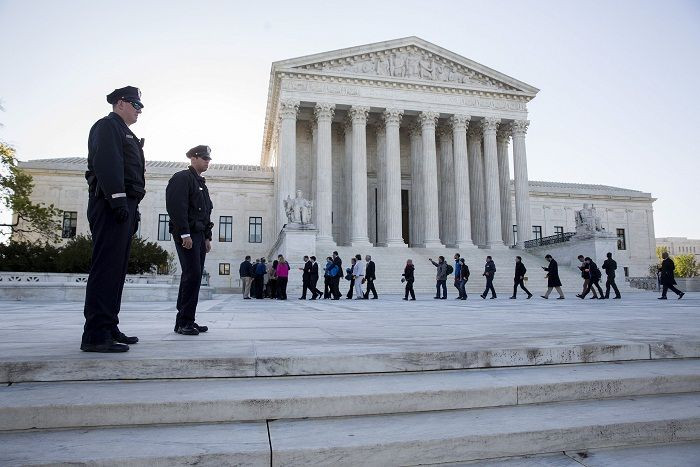Historic Gay Marriage Case Hearing By US Supreme Court

The Supreme Court of the U.S. is currently hearing arguments that may result in the legalisation of marriages between homosexuals. It is a historic case, which will also enable the apex court to decide that if a gay married couple wants to shift to another state, then their marriage will hold legality there.
There is a sharp divide in the country as signified by street demonstrations outside the court where protestors were carrying signs reflecting for and against opinions. There were also shouting and screaming by people who were strongly against gay marriage, according to a BBC report.
The case is that of Obergefell v Hodges and the consolidated cases. Jim Obergefell, a resident of Ohio, was not recognised as the legal widower of his late husband, John Arthur. "I'm here today to continue fighting for my husband, for our marriage, to continue to honour and protect him." Obergefell told the BBC.
Justice Anthony Kennedy, whose vote could prove pivotal on the issue, has questioned as to how could legalisation of gay marriage harm conventional set up. He has challenged John Bursch – a lawyer who represents states banning same-sex marriages.
Bursch was making children the focal point of his debate by citing that since sharing children was the reason behind marriage, removing it would entail that people are discouraged from letting children unite them and prevent them from separating.
The right to marry a person of the same sex was first granted in 2004 by Massachusetts. As of now, same sex marriages are permitted in 36 of the 50 states. The nine justices are not in consensus on the controversial matter. They are pondering over whether the 14th amendment of the U.S. constitution requires every state to grant marriage licences to gay couples.
There are 16 plaintiffs who want to marry as per law and they are all backed by President Obama’s administration. The court is hearing from plaintiffs from Tennessee, Ohio, Kentucky and Michigan -- where gay marriage is still banned. If the Supreme Court rules on these states, it will make by default decide on all 13 states which don’t permit gay marriages.
The writer can be contacted at ritambanati@yahoo.com.





















